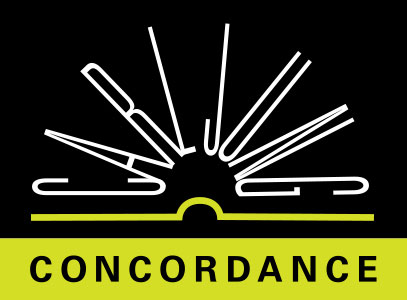Jung tells us that according to certain early texts, the original sea monster was split into two:
Some texts speak of two Leviathans; later the doubling is expressed in the pairing of Behemoth and Leviathan
AL ¶ 0Jung puts it another way in CW9.2: par. 183 , in the idea that the original deity split Leviathan off from himself or split a monster off from himself, so that the opposition was then between God and the monster
AL ¶ 0But then the monster split into two and the opposition was no longer between God and the monster, but between the two monsters. Then there were the two fish, a good fish and a bad fish
AL ¶ 0IMAGE OF TWO FISHES CORRESPONDS
TO THE TWO SONS OF GOD
This is a variation of the same archetypal image which Jung speaks of later, of the two son's of God, Christ and Satan. The image of the two fishes is the prototype for the two sons: Christ the good fish and Satan the bad fish
AL ¶ 0The symbol is an example of how the Self differentiates under the influence of consciousness. This can also be seen as a doubling of the shadow which Jung speaks of:
AL ¶ 0Jung: ( CW9.2: par. 185 ) This split corresponds to the doubling of the shadow often met with in dreams, where the two halves appear as different or even as antagonistic figures. This happens when the conscious ego-personality does not contain all the contents and components that it could contain
Still another consideration is that this kind of image in dreams indicates that awareness of the opposites is coming into consciousness. An unconscious content often appears in doubled form in dreams at such a time; it is split like Tiamat. What can happen is that one half of the form is accepted and added to consciousness, the half one likes; the half that one does not like is repressed again
AL ¶ 0Also relevant here is the double, paradoxical nature of the fish. After presenting some of the evidence on this, Jung goes on to say:
AL ¶ 0THE DOUBLE NATURE
OF THE FISH
Jung: ( CW9.2: par. 187 ) The ambivalent attitude towards the fish is an indication of its double nature. It is unclean and an emblem of hatred on the one hand, but on the other it is an object of veneration
LEVIATHAN EQUALS
CHRIST SYMBOLICALLY
Jung says that symbolically speaking, Leviathan equals Christ. They are symbolically equivalent, so that when one eats Christ's flesh in the eucharistic meal, one is eating Leviathan. Conversely, when one assimilates a bit of Leviathan, the primitive infantile psyche, one is also partaking of the sacred Eucharist
AL ¶ 0SYMBOLISM OF THE
NORTH
The symbolism of the north has been discussed previously, but Jung returns to it again in this chapter and reminds us with further material of the double, paradoxical quality of the north. Like the paradoxical fish, the north combines the opposites
AL ¶ 0North is the place God come's from, the source of Ezekiel's supreme vision, and it is also the place where Set and the devil reside
AL ¶ 0I think the basic reason for this is that the cosmic axis is rooted at the north star, and it is the center of the universe; the center of the great cosmic mandala is located there
AL ¶ 0FIERY FISH AS DIVINE LOVE
YET THE FIRE OF HELL
Here we have the fiery fish described on the one hand as representing divine love and divine grace, and on the other hand as the fire of hell and the spark of lechery. Jung note's how curious it is that diametrically opposite interpretations of the same symbol can be given without disturbing the interpreters. This double aspect of the fiery fish corresponds to the double character of the fish which was discussed previously
AL ¶ 0The fish is both divine loving fire and purgatorial fire at the same time. The reason Jung gives these images such emphasis is that they are the way that the psyche describes itself. This is the nature of libido: it is simultaneously sacred, divine fire, divine love, and at the same time, purgatorial hell fire
AL ¶ 0On the one hand libido energy manifests as primitive desirousness that consumes when it manifests in it's primeval intensity, unconsciously
AL ¶ 0On the other hand, in its conscious, differentiated form libido energy manifests as transpersonal love, the highest function of the human psyche
TRANSPERSONAL LOVE
Transpersonal love is the capacity to posit the existence of, to perceive, and to live one's life out of objective transpersonal value. It is valuing at the highest, most conscious level. Animals share the lower level of this with us. They can value a good meal, and we can too. But that is not objective love; that is the lower form, concupiscentia
AL ¶ 0